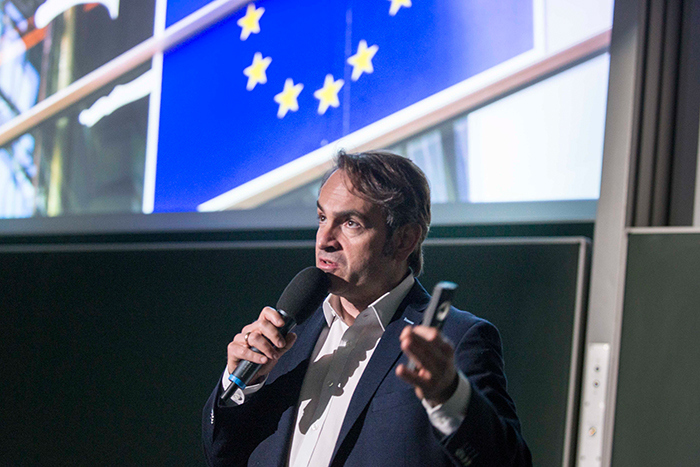Interculturality and internationalisation processes have been core areas of ZAK’s activities since the centre was founded in 2002. In order to make the activities of the cross-sectional area of interculturality and globalisation more visible in their complexity both within and outside KIT and to network them more strongly, we have bundled the projects running at ZAK as well as the intercultural competences of the scientists at ZAK in teaching, research and public science on this website.
The area of Interculturality and Globalisation at ZAK promotes the intercultural exchange of academic and civil society knowledge
-
in various formats of teaching, research and public science
-
in cooperation with project partners within KIT (e.g. International Affairs, International Student Center (ISC), International Scholars & Welcome Office (ISCO))
-
in cooperation with national and international partners outside KIT such as the Anna Lindh Euro-Mediterranean Foundation for the Dialogue between Cultures, the ifa (Institute for Foreign Cultural Relations), the German Federal Foreign Office, Goethe Institute, Humboldt Foundation
Through its activities in teaching, research and public science, the field of Interculturality and Globalisation promotes
-
cooperative forms of intercultural knowledge generation and application between science and (civil) society
-
the research and piloting of intercultural and interdisciplinary teaching-learning and participation formats
-
public science events in the field
-
the teaching of intercultural, interdisciplinary and democratic competences (intercultural citizenship education)
In this way, the area of Interculturality and Globalisation makes an important and application-oriented contribution to securing the KIT's internal scientific and social responsibility in research, teaching, innovation and transfer.
The multifaceted activities of the Interculturality and Globalisation field focus in their format, content and target group on current processes of change, potentials and challenges in society as a whole:
Cooperative forms of intercultural knowledge generation, application and exchange between science and civil society
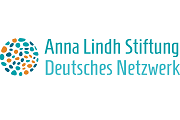
Further Information
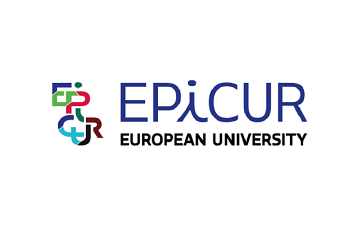
(in cooperation with the EPICUR partner universities: seminars and service-learning course as part of the EPICUR Internship Exchange Programme)
Further Information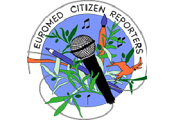
Further Information
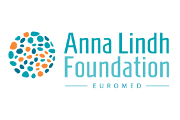
(in cooperation with project partners from Greece and Cyprus, under the lead of Kadir Has University, Istanbul, Turkey)
Further Information
(in cooperation with ifa (Institut für Auslandsbeziehungen, Stuttgart) and the working group of the Federal Foreign Office „Zivilgesellschaft in der Auswärtigen Kultur- und Bildungspolitik (AKBP)“)
Further InformationResearch and testing of intercultural and interdisciplinary teaching-learning and participation formats
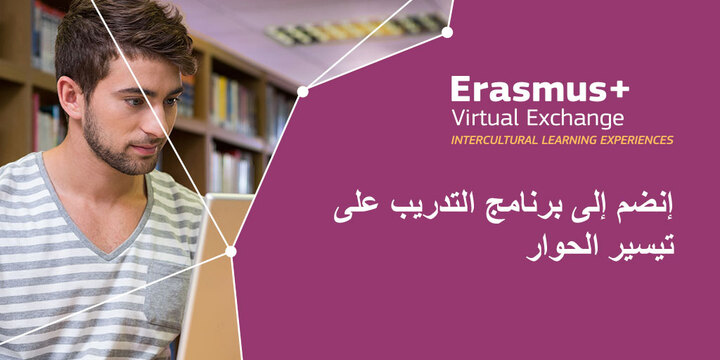
Intercultural Learning Experiences Cross-cultural Virtual Teaching and Learning
Further Information
(in cooperation with International Scholars and Welcome Office (IScO) at KIT)
Further InformationTeaching of intercultural, interdisciplinary and democratic competences (intercultural citizenship education)
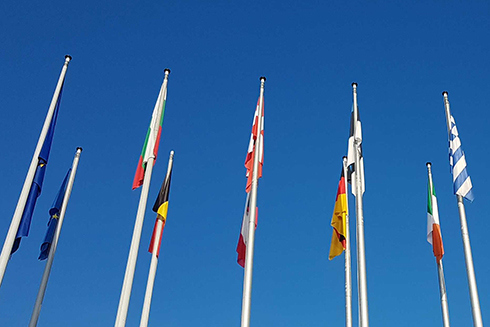
(in cooperation with International Affairs at KIT)
Further Information
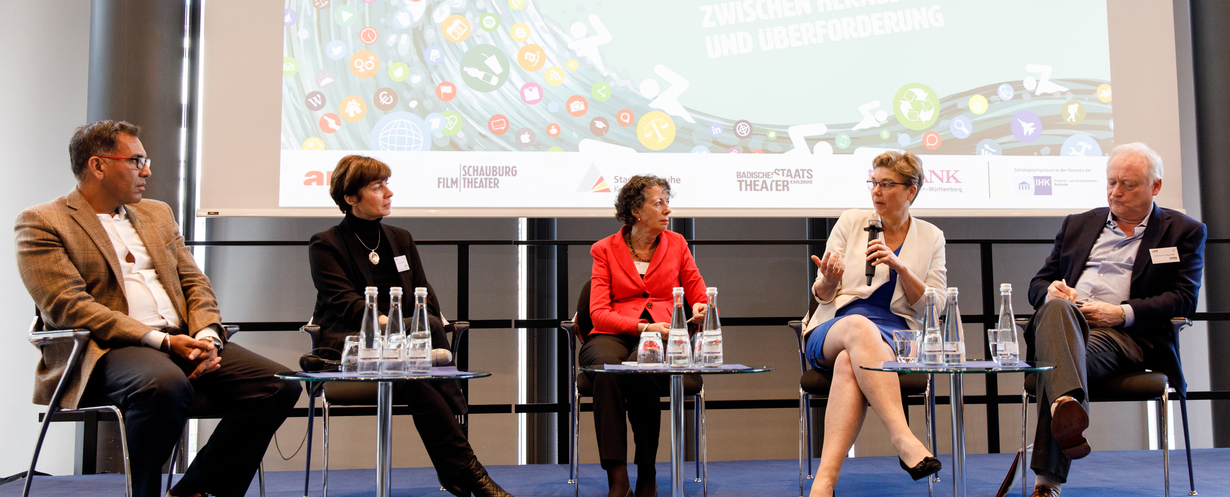
Selected pubilcations from the area Interculturality and Globalisation
Robertson-von Trotha, Caroline Y. (Ed.) (2021): Realities, Challenges, Visions? Towards a New Foreign Cultural and Educational Policy, WIKA (Academic Council for Culture and Foreign Policy) Report, Band 4. Karlsruhe: KIT Scientific Publishing, forthcoming.
Zaremba, Swenja (2021): How to Avoid Preaching Exclusively to the Choir: Extending the Scope of Civil Society Involvement in Cultural Relations. In: Robertson-von Trotha, Caroline Y. (Ed.): Realities, Challenges, Visions? Towards a New Foreign Cultural and Educational Policy, WIKA (Academic Council for Culture and Foreign Policy) Report, Band 4 (pp. 185–200). Karlsruhe: KIT Scientific Publishing, forthcoming.
Zaremba, Swenja (2020): University meets Civil Society – Transfer of Community and Academic Knowledge (with Stefanos Vallianatos, Anna Lindh Foundation Greece). Service-learning In Higher Education (SLIHE) Conference 2020 “What Does it Mean to Be(come) an Engaged University”, 13–16 July 2020. https://www.youtube.com/watch?v=dNIemA6d_EI.
Zaremba, Swenja (2020): Lessons Learned – Zur Zusammenarbeit mit zivilgesellschaftlichen Netzwerken. In: Institut für Auslandsbeziehungen e.V. (ifa) (Ed.): Weltweit 2019 (pp. 72–74). Stuttgart. https://www.ifa.de/fileadmin/Content/docs/organisation/ifa_jahrbuch_2019.pdf#page=38.
Robertson-von Trotha, Caroline Y. (Ed.) (2019): Diaspora – Netzwerke globaler Gemeinschaften, WIKA (Academic Council for Culture and Foreign Policy) Report, Band 3. Karlsruhe: KIT Scientific Publishing. https://publikationen.bibliothek.kit.edu/1000097707.
Civil Society Working Group for the 2020 Cultural Relations and Education Policy Process (2019): Ten Thesis “The Role of Civil Society in Cultural Relations“ (presentation by Swenja Zaremba and Dr. Odila Triebel). WIKA (Academic Council for Culture and Foreign Policy) Workshop 2019 “The Role of Civil Society in Cultural Relations”, Stuttgart, 26 September 2019. https://www.ifa.de/en/event/the-role-of-civil-society-in-cultural-relations/; https://www.zak.kit.edu/english/6433.php.
Zaremba, Swenja (2019): Collaboration in Transcultural Networks. Civil Society Organizations as Partners in Cultural Relations. KIT (Karlsruhe Institute of Technology) International Days 2019 “Karlsruhe and the World”, Karlsruhe, 9–10 October 2019. https://www.intl.kit.edu/download/Plakat_InternationalDays.pdf.
Zaremba, Swenja (2019): In transkulturellen Netzwerken zusammenarbeiten. Zivilgesellschaftliche Organisationen als Partner in der internationalen Kulturarbeit. In: Robertson-von Trotha, Caroline Y. (Ed.): Diaspora – Netzwerke globaler Gemeinschaften, WIKA (Academic Council for Culture and Foreign Policy) Report, Band 3 (pp. 51–67). Karlsruhe: KIT Scientific Publishing. https://publikationen.bibliothek.kit.edu/1000097707.
Robertson-von Trotha, Caroline Y. (2018): NationEUrope and the Challenges of the European Narrative: Introductory Remarks. In: ibid. (Ed.): NationEUrope. The Polarised Solidarity Community (pp. 9–31). Baden-Baden: Nomos.
Robertson-von Trotha, Caroline Y. (2018): Öffentliche Wissenschaft und das Internet (with Jesús Muñoz Morcillo). In: Böhn, Andreas/Metzner-Szigeth, Andreas (Eds.): Wissenschaftskommunikation, Utopien und Technikzukünfte. Karlsruher Studien Technik und Kultur, Band 9 (pp. 53–73). Karlsruhe: KIT Scientific Publishing.
Robertson-von Trotha, Caroline Y. (2018): Öffentliche Wissenschaft. Von ‚Scientific Literacy' zu ‚Participatory Culture' (with Jesús Muñoz Morcillo). In: Selke, Stefan/Treibel, Anette (Eds.): Öffentliche Gesellschaftswissenschaften (pp. 43–60). Wiesbaden: Springer Verlag.
Robertson-von Trotha, Caroline Y. (2017): Authenticity Through VR-based Documentation of Cultural Heritage. A Theoretical Approach Based on Conservation and Documentation Practices (with Jesús Muñoz Morcillo; Franziska Schaaf; Ralf H. Schneider). Virtual Archaeology Review, 8 (16), pp. 35–43.
Robertson-von Trotha, Caroline Y. (2016): Authenticities and Virtual Reality. The Case Studies Jupiter Column and Kaleidophonic Dog (with Jesús Muñoz Morcillo; Franziska Schaaf; Ralf H. Schneider). Conference Paper. Proceedings of the 8th International Congress on Archaeology, Computer Graphics, Cultural Heritage and Innovation ARQUEOLÓGICA 2.0, pp. 484–487.
Robertson-von Trotha, Caroline Y. (2016): Offen für Neues sein. In: infodienst – Das Magazin für kulturelle Bildung “Vielfalt zulassen. Diversität gestalten“, Nr. 121, pp. 13–14.
Robertson-von Trotha, Caroline Y. (2016): Typologies of the popular science web video (with Jesús Muñoz Morcillo and Klemens Czurda). In: Journal of Science Communication (JCOM), 15 (4), A02. https://jcom.sissa.it/archive/15/04/JCOM_1504_2016_A02.
Robertson-von Trotha, Caroline Y. (2016): Die Verantwortung der Universitäten im Spannungsfeld von Spezialwissen und Schlüsselqualifikationen: die Rolle des Studium Generale (with Miriam Friedrichs and Marco Ianniello). In: Konnertz, U./Mühleisen, S. (Eds.): Bildung und Schlüsselqualifikationen. Zur Rolle der Schlüsselqualifikationen an den Universitäten (pp. 123–149). Frankfurt am Main: Peter Lang.
Robertson-von Trotha, Caroline Y. (2016): Die Zwischengesellschaft. Ein Orientierungsentwurf. In: ibid (Ed.): Die Zwischengesellschaft. Aufbrüche zwischen Tradition und Moderne? (pp.53–68). Baden-Baden: Nomos.
Zaremba, Swenja/Hecht, Janina (2016): Reisen und Kulturbegegnung in der Literatur der Gegenwart. Ein Beitrag zur Praxis des Interkulturellen Kompetenzerwerbs. In: Berendt, Brigitte/Fleischmann, Andreas/Schaper, Niclas/Szczyrba, Birgit/Wiemer, Matthias/Wildt, Johannes (Eds.): Neues Handbuch Hochschullehre E 3.13 (pp. 123–148). Berlin: DUZ Verlags- und Medienhaus. https://www.zak.kit.edu/downloads/NHHL_E_3.13_Zaremba_Hecht.pdf.
Robertson-von Trotha, Caroline Y. (2014): Inside the German Experience of Cultural Pluralism. In: The Anna Lindh Euro-Mediterranean Foundation for the Dialogue between Cultures (Ed.): The Anna Lindh Report 2014. Intercultural Trends and Social Change in the Euro-Mediterranean Region (pp. 73–76). Alexandria.
Robertson-von Trotha, Caroline Y./Zaremba, Swenja/Ianniello, Marco (2014): Germany: Evolving Forms of Citizen Activism. In: The Anna Lindh Euro-Mediterranean Foundation for the Dialogue between Cultures (Ed.): The Anna Lindh Report 2014. Intercultural Trends and Social Change in the Euro-Mediterranean Region (pp. 99–100). Alexandria. https://www.annalindhfoundation.org/sites/default/files/documents/page/anna_lindh_report14_0_0.pdf.
Robertson-von Trotha, Caroline Y. (2014): Perspectives of Cultural Interplays in Sustainability Research (with Robert Hauser and Oliver Parodi). In: Parodi, O./Nelson, G. L./Banse, G. (Eds.): Sustainable Development – The Cultural Perspective. Concepts – Aspects – Examples (pp. 377–381). Berlin: edition sigma.
Thum, Bernd/Zaremba, Swenja (Eds.) (2014): EuroMed – MemoriaCarte. Erinnerungsorte für die Gegenwart – eine Landkarte kultureller Manifestationen im euro-mediterranen Raum. Online Ressource. Stuttgart.
Zaremba, Swenja (2012): Le Philosophe Sufi Ibn Tufail: Migration des Idées dans L’espace Euro Méditerranéen. Colloque International “Savants, artistes, écrivains ... échanges de savoirs euro-méditerranéens” , Nancy, 1–3 October 2012. https://lorexplor.istex.fr/wicri-lor.fr/index.php/Savants,_artistes,_écrivains_2012_Nancy.
Robertson-von Trotha, Caroline Y. (2010): Plurale Identitäten in der globalisierten Stadtgesellschaft. In: Ehlail, F./Schön, H./Strittmatter-Haubold, V. (Eds.): Die Perspektive des Anderen. Kulturräume anthropologisch, philosophisch, ethnologisch und pädagogisch beleuchtet. Schriftenreihe der Pädagogischen Hochschule Heidelberg, Band 53 (pp. 99–111). Heidelberg.
Robertson-von Trotha, Caroline Y. (2009): Dialektik der Globalisierung. Kulturelle Nivellierung bei gleichzeitiger Verstärkung kultureller Differenz. Karlsruhe: universitätsverlag karlsruhe.
Zaremba, Swenja (2009): Ahlan wa Sahlan! Kooperative deutsche Hochschulgründungen in der Arabischen Welt. In: Maaß, Kurt-Jürgen/Thum, Bernd (Eds.): Deutsche Hochschulen im Dialog mit der Arabischen Welt (pp. 49–61). Karlsruhe: universitätsverlag karlsruhe. https://publikationen.bibliothek.kit.edu/1000011620.


